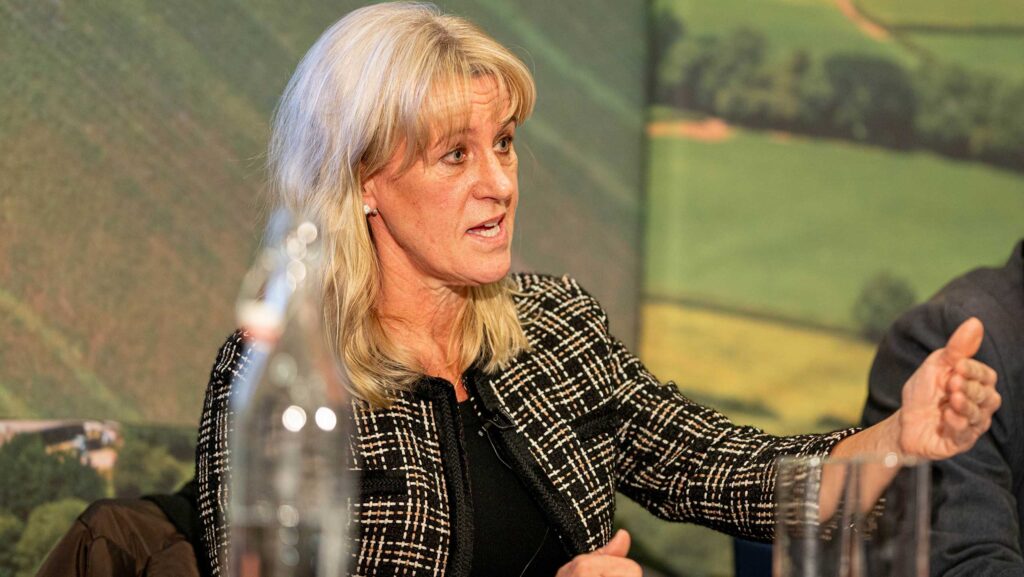Baroness Batters sheds more light on profitability review
 © Telling Photography
© Telling Photography Beefing up the role of the new tenant farming commissioner is one of the key recommendations in the farm profitability review conducted by Baroness Minette Batters.
This includes giving him statutory powers to intervene in landlord-tenant disputes.
While the full review has yet to be published by Defra, Baroness Batters provided some further insight during a webinar hosted by the Tenant Farmers Association on Wednesday (19 November).
See also: Alan Laidlaw sets out his aims as tenant farming commissioner
Baroness Batters likened the reluctance of tenants to speak up against their landlords to the fears some farmers face of being delisted if they complain about supermarket behaviour.
“This has led me to write into this review that we should look to the potential of giving the tenants’ commissioner [Alan Laidlaw] the same statutory powers as the groceries code adjudicator [GCA].”
“Mark White [the GCA] has been able to offer complete anonymity to a supplier and is able to go to any retail outlet and deal with the problem,” she said.
“Installing the same power [to the tenant farming commissioner] would send a very strong message.”
Baroness Batters said her review included other recommendations in relation to the GCA, such as citing the role within Defra, and rolling out its powers to the “out of home” food sector.
Security of tenure
Another area covered by the review includes improving security of tenure as a means of lifting profitability.
“I absolutely support the TFA’s call for a long-term approach to tenancies,” Baroness Batters said. “It’s not just beneficial to the tenant, it’s beneficial to the landlord.”
The positive contribution of the tenanted sector was well covered in her report, she added.
Baroness Batters also expressed her concerns about the landscape recovery element of environmental land management in England.
She described the programmes as “diamonds in paper crowns”, and being “for the few, not the many”.
There was a danger that they favoured larger landowners to the detriment of smaller, family farms – which was exactly what the old Basic Payments Scheme (BPS) was criticised for.
Active farmers
Baroness Batters added that her report supported the “active farmer” principle when Defra was developing its support schemes, so that money did not flow out to outside investors.
“Embedding the active farmer principle is a key principle and is very important for the tenanted sector, because if we don’t have that, the temptation will be to bring more land back in hand.”
Baroness Batters applauded the commitment to the “active farmer” principle being shown in Wales and Scotland, adding that the decision to de-link payments in England at the start of winding down the BPS had been a mistake.
Advice and collaboration
The profitability review will also include recommendations to bring many of the different market intelligence organisations in agriculture under one roof, and to have a stronger focus on collaboration – including within government.
“There is a strong focus on Defra becoming an economic department, joined up with the department for business and trade,” she said.
“There is also a lot on planning, on incentives, and on restructuring in a way that is similar to Southern Ireland, with Bord Bia and Teagasc – effectively their equivalent of ADAS.
“Advice is in too many different places and has been incredibly expensive,” Baroness Batters said. “In many cases it has been prohibitive, which is why 50% are not even in the Sustainable Farming Incentive.”
Frustration
Overall, Baroness Batters said she was frustrated that her review had not been published by Defra, having been delayed until after the Budget on 26 November.
Speaking at a separate event this week, Defra secretary Emma Reynolds said that it would be published “before Christmas” and would be accompanied by a “high level response” detailing.
This would include recommendations Defra would take forward in order to improve profitability.
